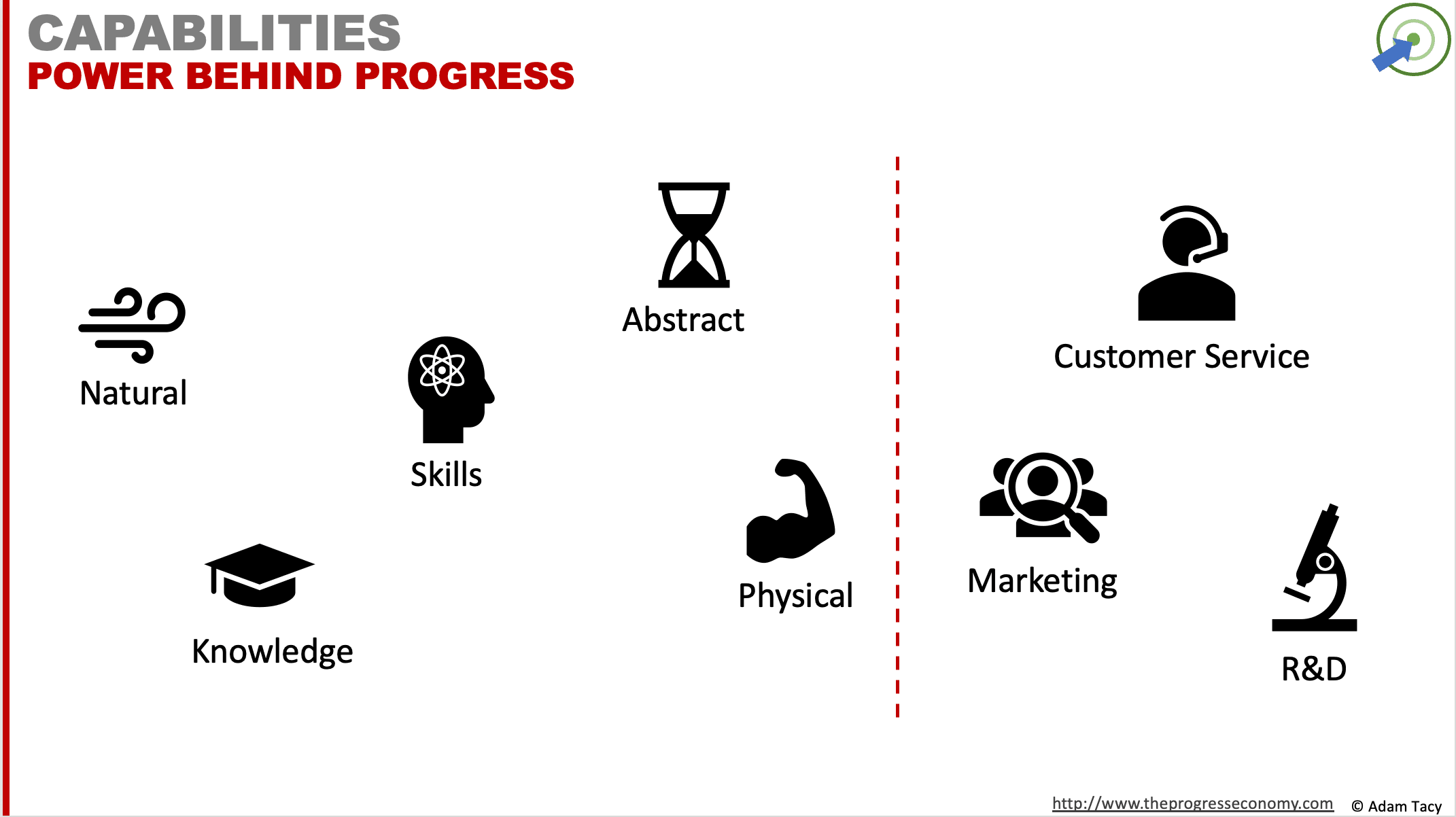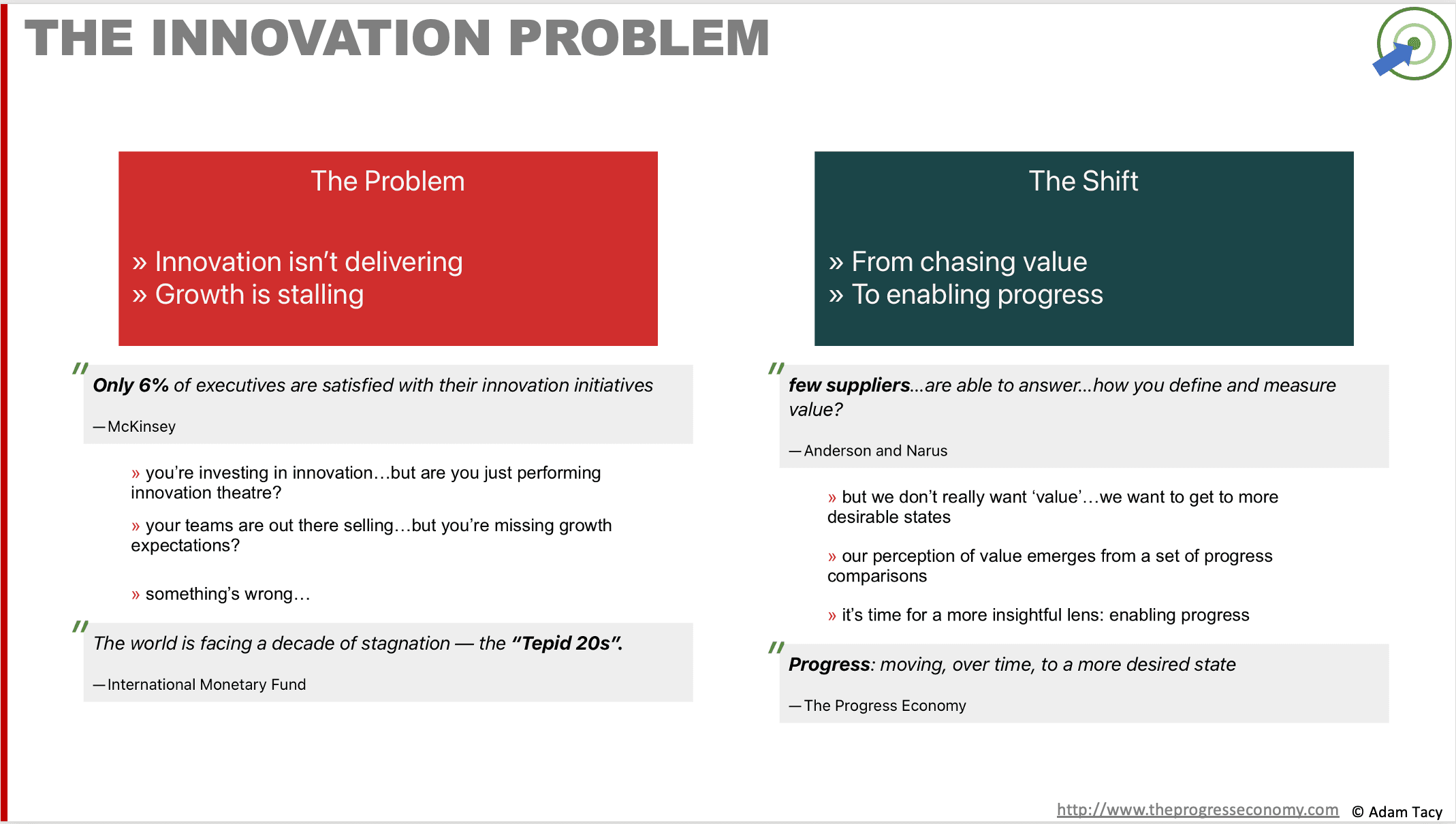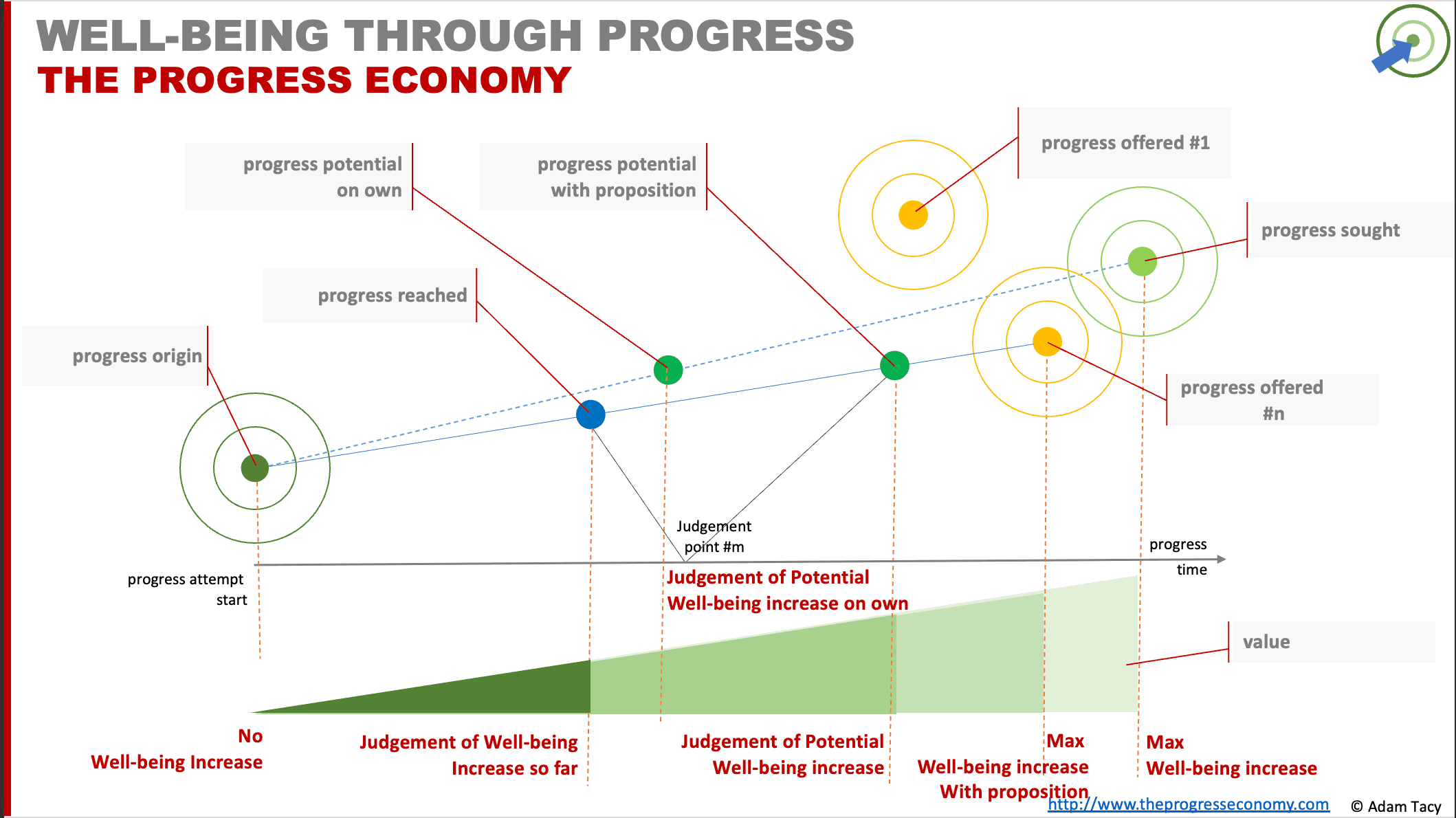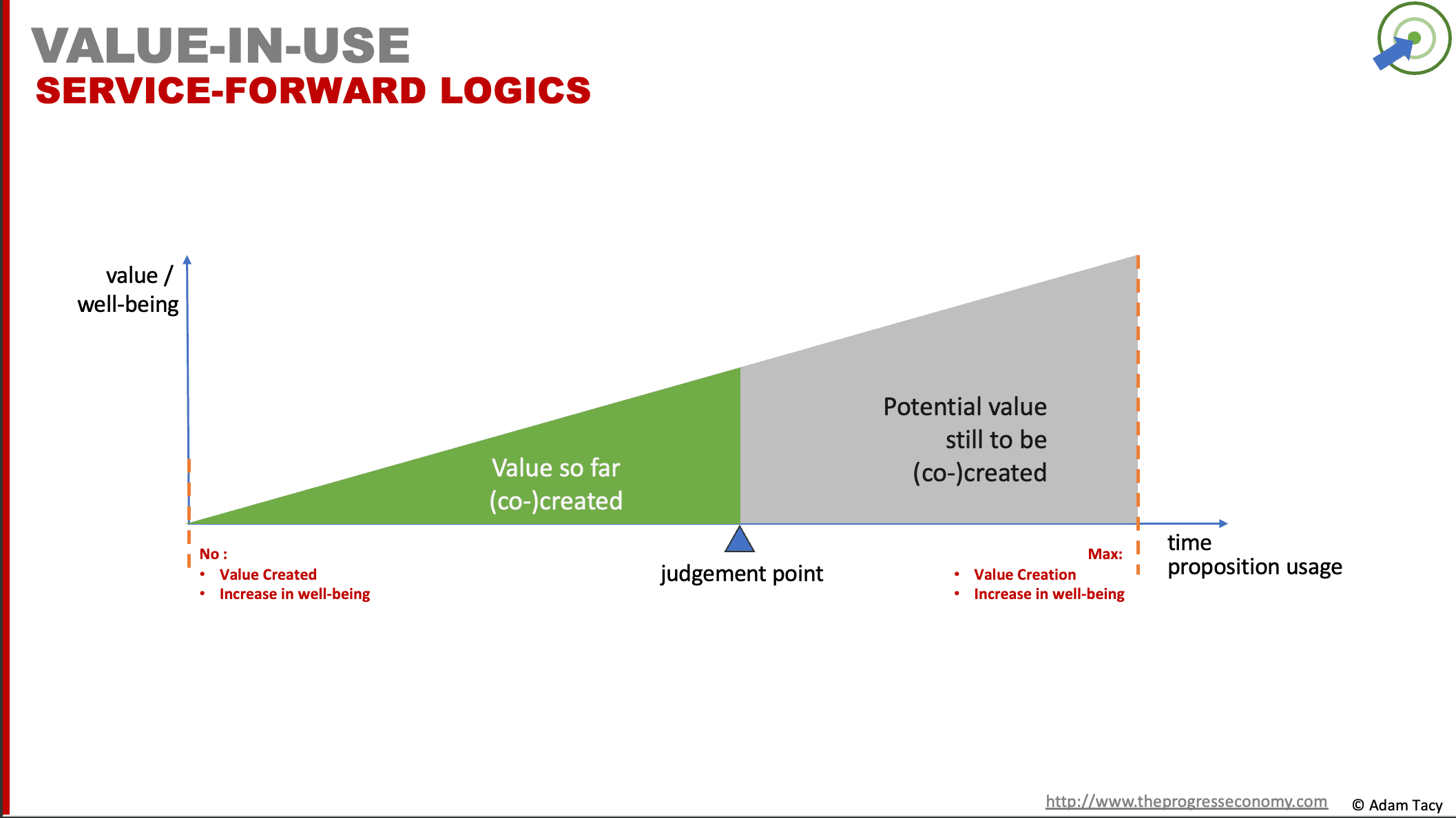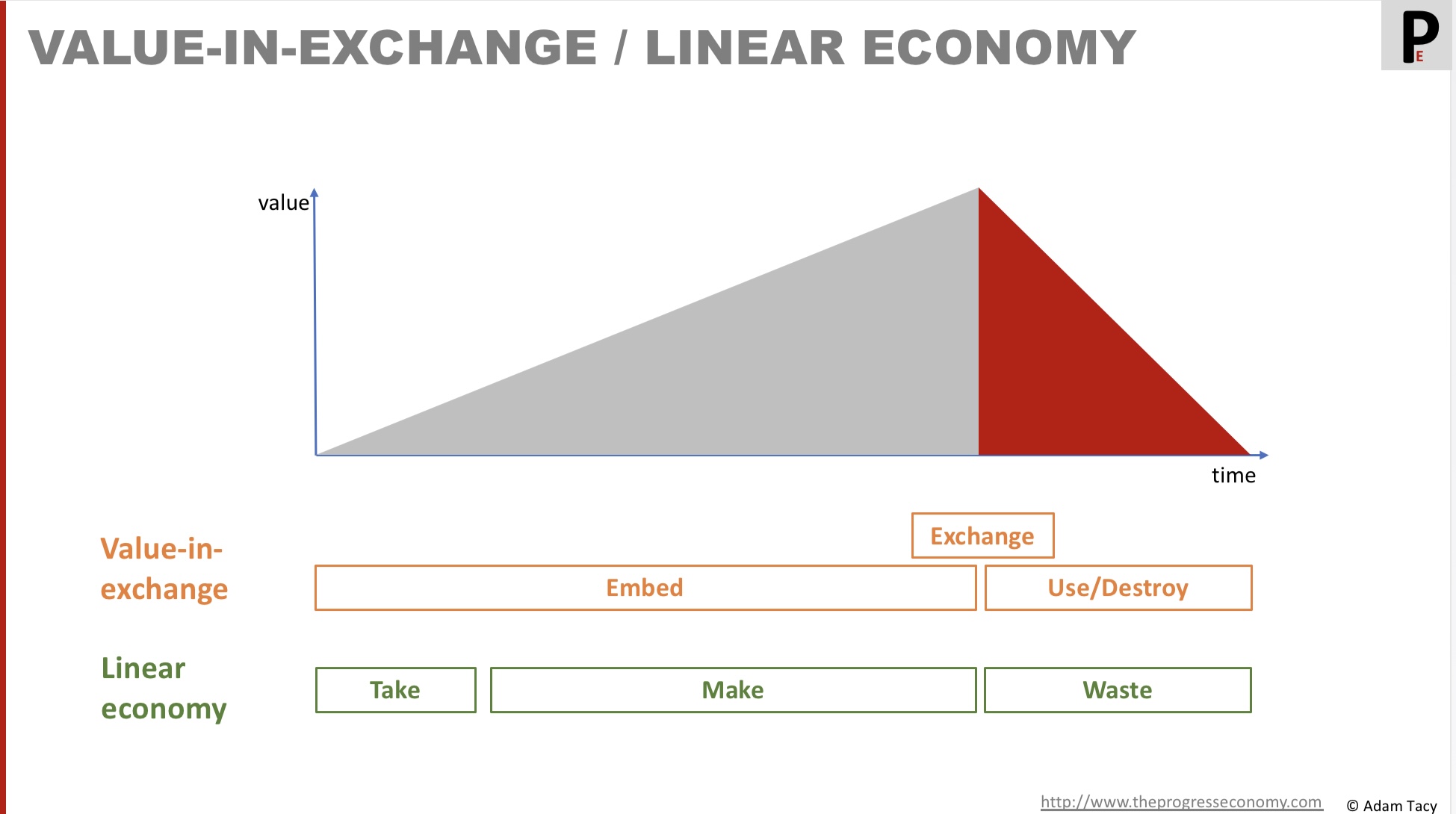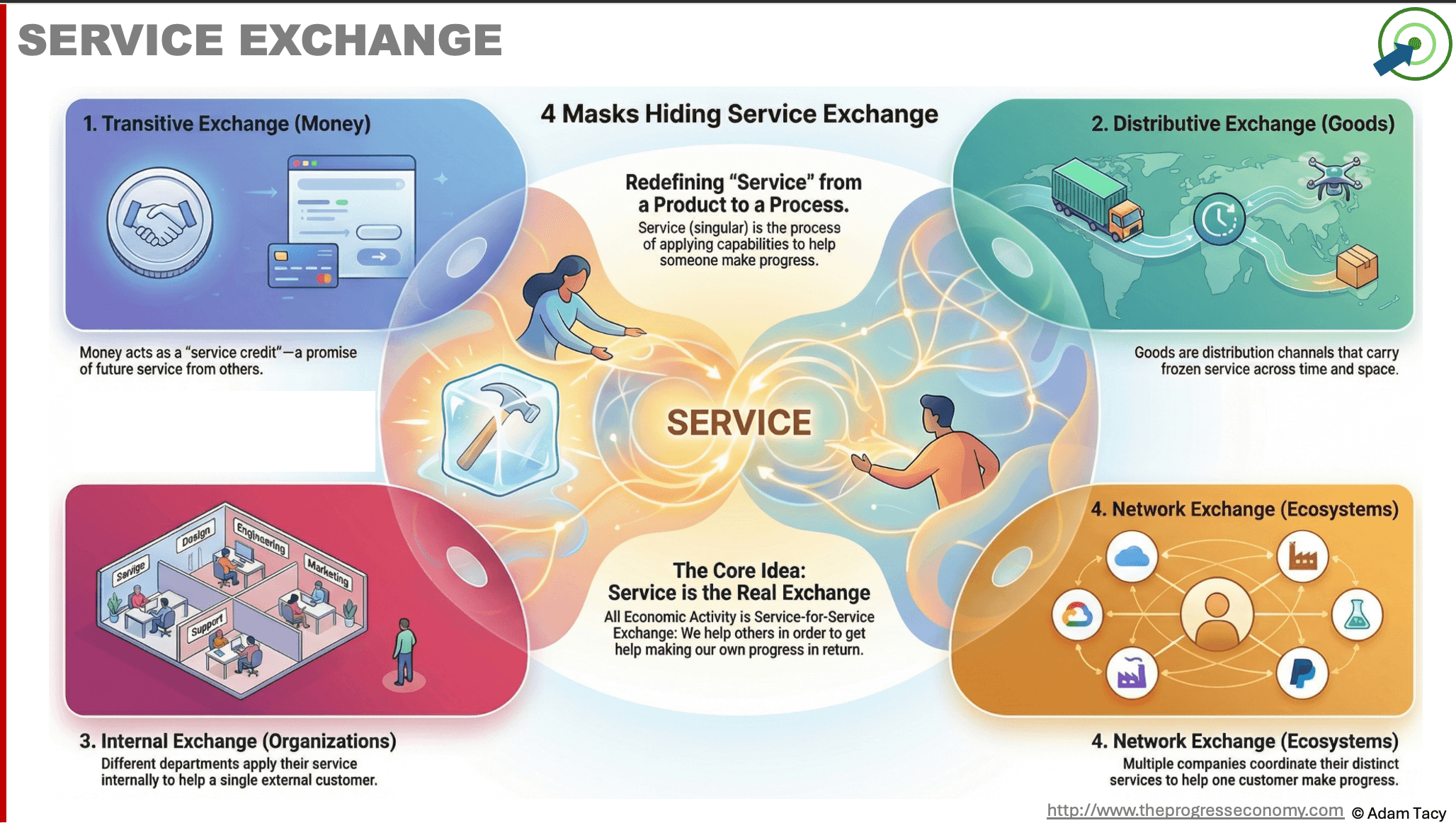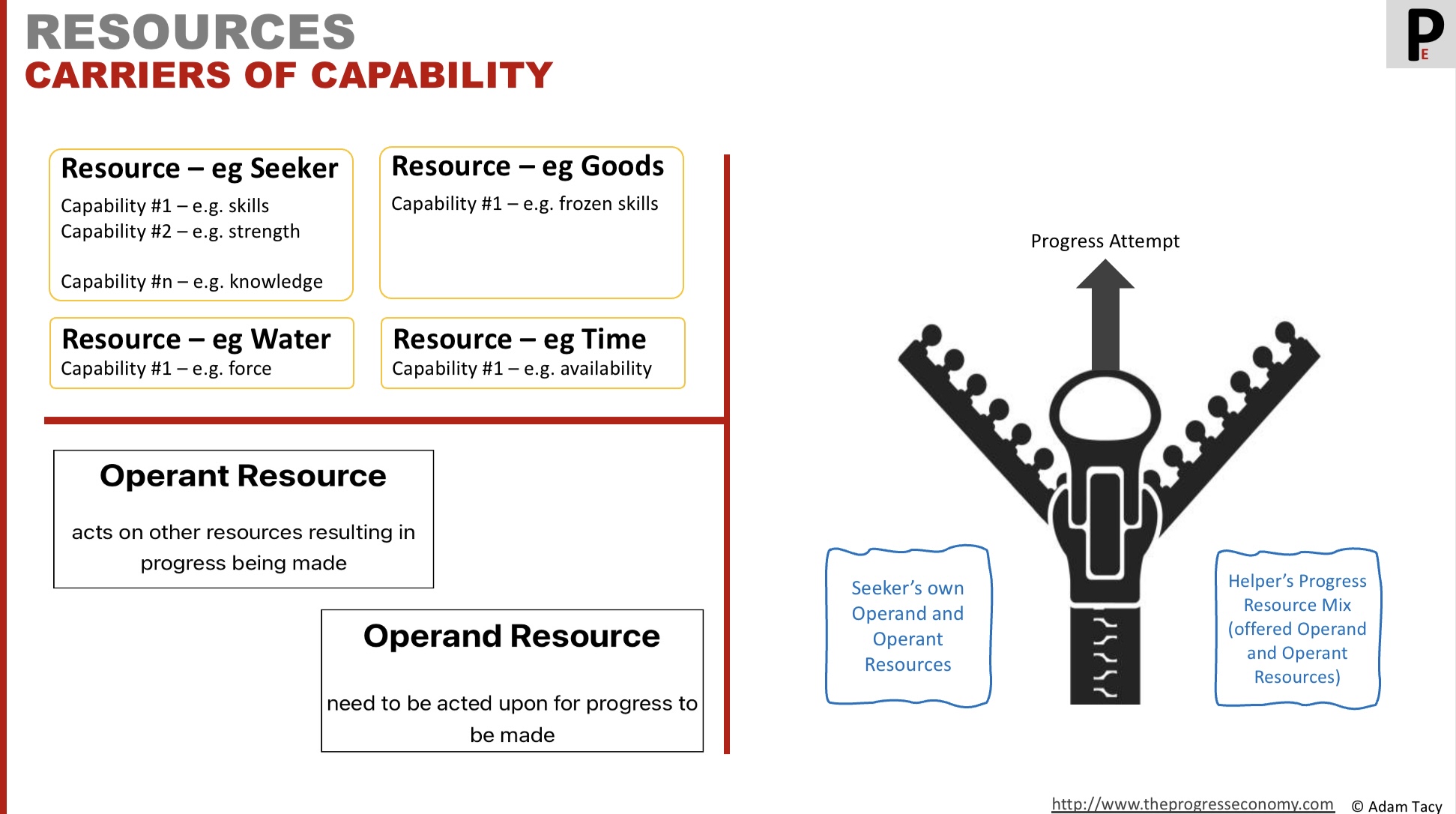Capabilities – the power behind progress
Capabilities – the power behind progress: better capabilities, better progress; lacking capabilities hinder progress. Ask yourself, what capabilities are missing, or can be improved, for a progress journey? (and secondly, through what resource, aligned with Seeker’s desires, can you offer those capabilities?)
Operand Resources
If you’re still competing on operand resources alone – those that need to be acted upon for progress to happen – you will be tomorrow’s commodity players. Though for some Helpers that is a useful position. Editing below here What we’re thinking Operand resources, compared to operant ones, are passive – they must be acted
Operant Resources
Understanding and designing your business around operant resources – those that act on other resources to make progress – should be the norm for unlocking progress, innovation, and sustainable growth. Though make sure your target Seeker(s) are not looking for more enabling-like propositions and/or the inequitable exchange hurdle is not too high. Writing / editing
The Innovation Problem
Are you happy with your innovation results or are you like 94% of executives McKinsey found that are not? Here’s what causes this innovation problem. What we’re thinking McKinsey tell us only 6% of executives are happy with their innovation initiatives – think about that for a moment, 94% of executives are not happy! Yet
well-being-through-progress
The progress economy reframes value creation by focusing on progress rather than static value. Progress is seen as a dynamic movement towards a more desirable state, with value emerging as this progress is made. This approach encourages systematic innovation by addressing progress hurdles and recognizing the complexities and multifaceted nature of value creation.
Value-in-use
The value-in-use model emphasizes incremental value creation through the active use of value propositions, solving blind spots present in the traditional value-in-exchange model. It focuses on service as the key driver of value, promoting adaptability and well-being without the goods versus services debate. Progress relies on beneficiary judgment, dialogue, and resource integration, encouraging continuous value co-creation and innovation.
Value-in-Exchange
The traditional value-in-exchange model has been wildly successful. But its narrow focus on a point of exchange and difficulties in defining what value actually is now hinders growth. Sadly, this model encourages incremental over radical innovation, and has blind spots, missing out on opportunities before and after exchanges, and hinders the shift to a circular economy.
Service Exchange
Rediscovering that service is the true nature of exchange isn’t just clarifying, it reveals powerful levers for innovation. What we’re thinking We live in a world where service (singular) exchange – helping others make progress in order to get help making our own progress – is the true engine of economic activity. Yet we comfortably
Phenomenological
It’s all the baggage and what you’re currently experience that you bring to decisions; you wonderfully complex human being WHAT WE’RE THINKING Phenomeno-what? I’m with you, what a mouthful! Yet we’ll use this word a lot in The Progress Economy, so let’s try and get some intuition about it. Think of it as the baggage
Resources – carriers of capabilities
Stop asking “What product should we build?” and start asking “What capabilities do our customers lack that is limiting their progress?”, and then package those in resources that deliver them best in the context of the Seeker’s progress. What we’re thinking Progress is made when we successfully integrate resources that carry the necessary capabilities. It
